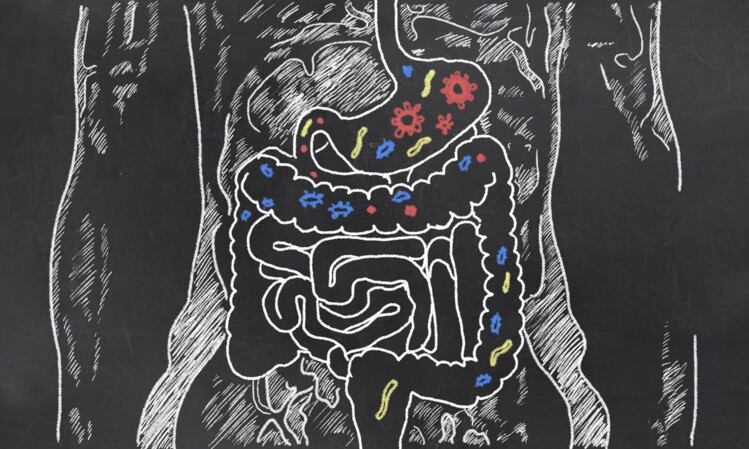Researchers from the University of Sydney’s Charles Perkins Centre, the Barwon Infant Study from Deakin University, Monash University, James Cook University and the Australian National University collaborated to investigate the role of these metabolic products of gut bacteria during pregnancy in both mice and humans.
Senior author of the study Professor Ralph Nanan said increasing intake of foods and nutrients that boost acetate production, such as those high in fibre, could be an effective primary prevention strategy.
“The mother’s gut bacteria and diet appear to be crucial to promoting a healthy pregnancy,” Professor Nanan, from the University of Sydney School of Medicine and Charles Perkins Centre, said.
Published in Nature Communications, the study found that in humans, reduced levels of acetate, which is mainly produced by fibre fermentation in the gut, is associated with the common and serious pregnancy-related condition preeclampsia.
Moreover, maternal acetate supplementation had a significant impact on the foetal immune system in a germ-free mouse model.
The academics wrote: “In this study, we present evidence of an association between maternal gut microbial metabolites and foetal immune development in preeclampsia. Specifically, we demonstrate in mice a link between acetate and foetal thymic development and output [in mice], with concordant associations in human cohorts between decreased serum acetate and subsequent preeclampsia, and between preeclampsia and decreased thymic size and output in the offspring.”
They added: “Acetate levels fluctuate depending on recent dietary intake and microbial composition. Therefore, a single measurement of serum acetate levels can only provide a snapshot and not the cumulative exposure to acetate over the duration of pregnancy. Further longitudinal studies, with larger numbers of women with preeclampsia, are required to assess acetate production in the context of microbiota composition and diet throughout preeclampsia and healthy pregnancy.”
Autoimmune risk
Preeclampsia occurs in up to 10 percent of pregnancies and is characterised by high blood pressure, protein in the urine and severe swelling in the mother. It also interferes with the child’s immune development whilst in the womb, with some evidence suggesting a link to higher rates of allergies and autoimmune disease later in life.
The current study found that preeclampsia affected the development of an important foetal immune organ, the thymus, which sits just behind the breastbone.
Foetuses in preeclamptic pregnancies were found to have a much smaller thymus than children from healthy pregnancies.
The cells the thymus normally generates, called T cells (thymus-derived cells) – specifically those associated with the prevention of allergies and autoimmune conditions such as diabetes – also remained lower in infants after preeclampsia, even four years after delivery.
The mechanisms of acetate on the developing fetal immune system were further examined in separate experiments involving mice that showed acetate was central in driving fetal thymus and T cell development.
Together, these results showed that promoting specific metabolic products of gut bacteria during pregnancy might be an effective way to maintain a healthy pregnancy and to prevent allergies and autoimmune conditions later in life.
They may also, in part, explain the rapid increase of allergies and autoimmune conditions as Western diets are increasingly dominated by highly processed foods, which are very low in fibre.
“More studies are urgently needed to understand how we can best target this system to reduce the growing burden of immune related diseases in the modern world,” said co-author Peter Vuillermin, co-lead of the Barwon Infant Study, a major birth cohort study being conducted by the Child Health Research Unit at Barwon Health in collaboration with the Murdoch Children’s Research Institute (MCRI) and Deakin University.
Source: Nature Communications
“Decreased maternal serum acetate and impaired fetal thymic and regulatory T cell development in preeclampsia”
Nature Communications, volume 10, Article number: 3031 (2019)
Authors: Ralph Nanan, et al.





